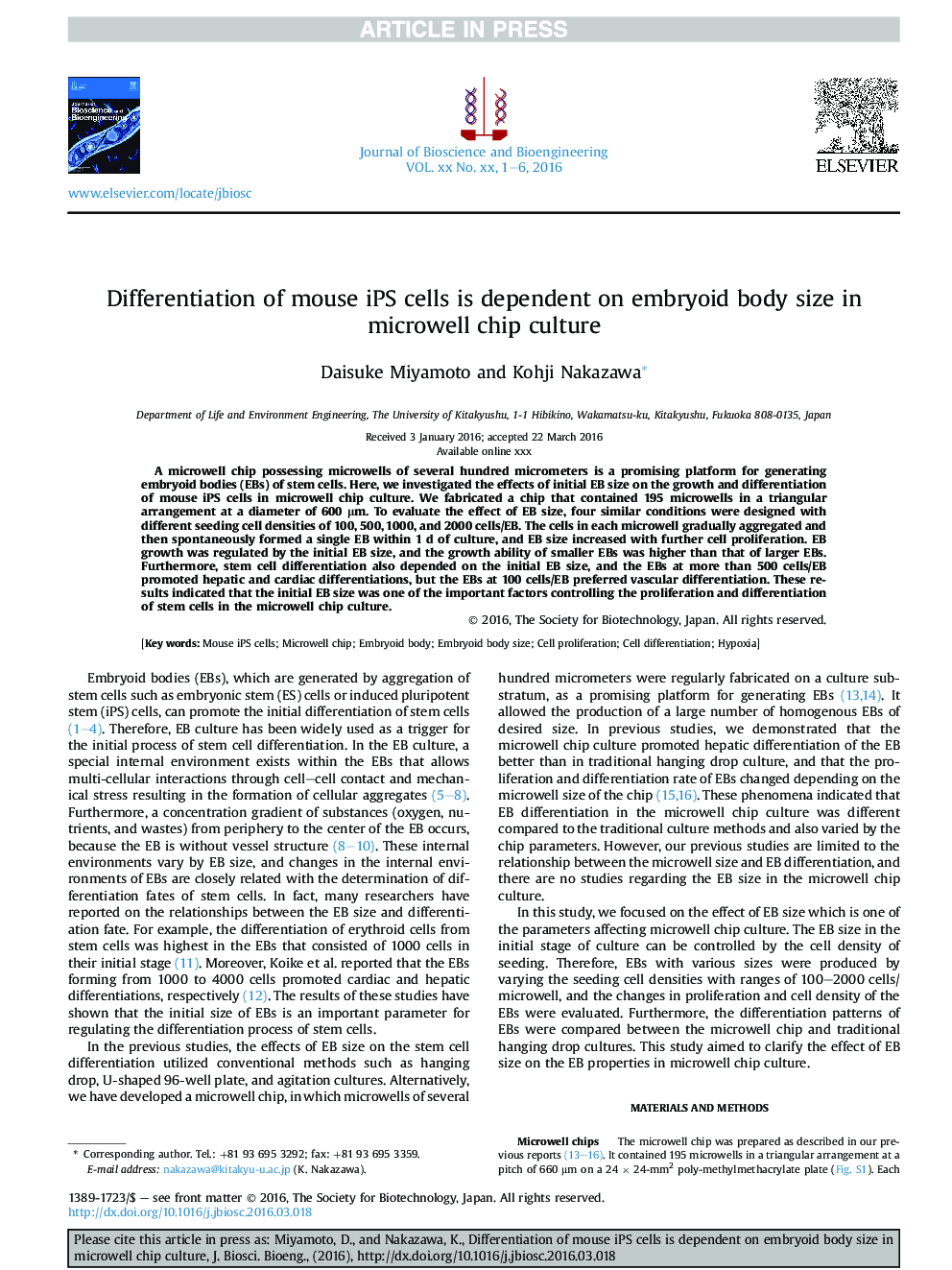| Article ID | Journal | Published Year | Pages | File Type |
|---|---|---|---|---|
| 4753358 | Journal of Bioscience and Bioengineering | 2016 | 6 Pages |
Abstract
A microwell chip possessing microwells of several hundred micrometers is a promising platform for generating embryoid bodies (EBs) of stem cells. Here, we investigated the effects of initial EB size on the growth and differentiation of mouse iPS cells in microwell chip culture. We fabricated a chip that contained 195 microwells in a triangular arrangement at a diameter of 600 μm. To evaluate the effect of EB size, four similar conditions were designed with different seeding cell densities of 100, 500, 1000, and 2000 cells/EB. The cells in each microwell gradually aggregated and then spontaneously formed a single EB within 1 d of culture, and EB size increased with further cell proliferation. EB growth was regulated by the initial EB size, and the growth ability of smaller EBs was higher than that of larger EBs. Furthermore, stem cell differentiation also depended on the initial EB size, and the EBs at more than 500 cells/EB promoted hepatic and cardiac differentiations, but the EBs at 100 cells/EB preferred vascular differentiation. These results indicated that the initial EB size was one of the important factors controlling the proliferation and differentiation of stem cells in the microwell chip culture.
Related Topics
Physical Sciences and Engineering
Chemical Engineering
Bioengineering
Authors
Daisuke Miyamoto, Kohji Nakazawa,
